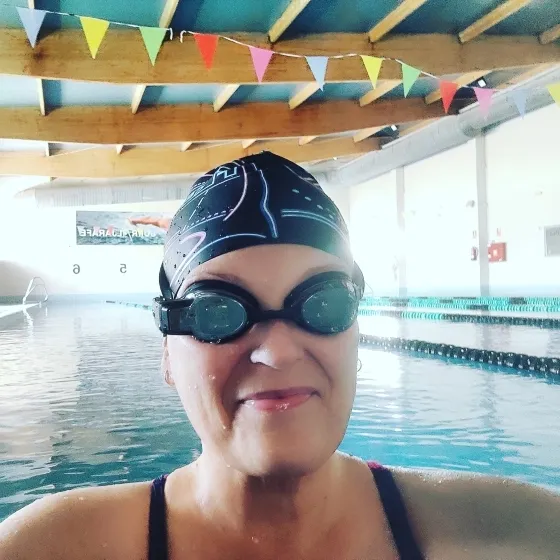Hello, after erroneous surgery (gastric bypass) that is contraindicated for a diabetic t1 and they erre that was T2 (I debuted with diabetes in pregnancy with my second child), 4 months later and after the test resultsOf the peptida-C and those of immunology, he tells me "surprise, you are type 1 and the 8 hours in the operating room will only harm your diabetes but you have lost 20 kg so you have to look at the positive."Nothing that they had taught me years ago with food and the next nutrition formation course is in December.For more inri my portion is not the same as everyone else because surgery has left me a very small stomach.For example, I, like using a small dish, a portion of legumes for me is half a saucepan.My stomach can't stand much more.They have not given me any type of information that I must eat and how to count the carbohydrates to regulate insulin.I am totally lost with this because surgery has caused my body to be very sensitive with what I eat and do great peaks with meals.With a bread (montadito size and coffee can get me 250 easily. It took almost an hour and a half to finish breakfast because the stomach does not tolerate liquid and solid together as well as having to eat very slowly and everything chewed well. Any kindInformation will be welcome because I will adapt it to my circumstances.
No signature configured, add it on your user's profile.
@Belinda, but do you make a quick insulin at meals?
Hija de 35 años , diabética desde los 5. Glico: normalmente de 6 , pero 6,7 la última ( 6,2 marcaba el Free)
Fiasp: 4- 4- 3 Toujeo: 20
@Belinda.Well your situation is difficult and we cannot consider it as a diabetes only since your operation that limits you.
Eating between hours would be something of protein such as Serrano ham that does not make you climb.
The best thing for that anxiety is to go outside and play sports or walk.Very important it would be that I could see a nutritionist already and teach you what food you can process better.
Let's see depends on the time that your stomach is now doing digestions and for what you tell it is urgent that they help you with food.
Nothing happens to live without the Free, he tries not to depend so much on him.
See alternate controls of the free and capillary.
We have lived a lifetime without sensors and I guarantee that it can be done.
Find the former helps to teach you to eat and it will be the only way to adapt insulin dose correctly.
No signature configured, add it on your user's profile.
vanessa30 said:
@belinda.Well your situation is difficult and we cannot consider it as a diabetes only since your operation that limits you.
Eating between hours would be something of protein such as Serrano ham that does not make you climb.
The best thing for that anxiety is to go outside and play sports or walk.Very important it would be that I could see a nutritionist already and teach you what food you can process better.
Let's see depends on the time that your stomach is now doing digestions and for what you tell it is urgent that they help you with food.
Nothing happens to live without the Free, he tries not to depend so much on him.
See alternate controls of the free and capillary.
We have lived a lifetime without sensors and I guarantee that it can be done.
Find the former helps to teach you to eat and it will be the only way to adapt insulin dose correctly.
Thanks for answering Vanessa.I have the free freestyle for 1 year.I have financed it so far but given the change from T2 to T1 because they already give it to me.I am not eager to eat.On the contrary.Surgery limits my intake to very little and I have to force me to eat because I'm never hungry.What is not how to keep my glucose stable.I am looking for some examples of weekly or daily menus to orient myself better ..
No signature configured, add it on your user's profile.
Hi @belinda.You can help you the food tables that circulate through the forum to count the carbohydrates that each food has.You have to find a balance between the Fiasp insulin that you put on and the rations of hydrates you eat.If you have a large peak after having food you might raise the FIASP.You have to try.I hope you soon visit with a diabetological nurse.
DM1 desde 1982: Toujeo+Novorapid
Freestyle Libre 3+
vanessa30 said:
@belinda.Well your situation is difficult and we cannot consider it as a diabetes only since your operation that limits you.
Eating between hours would be something of protein such as Serrano ham that does not make you climb.
The best thing for that anxiety is to go outside and play sports or walk.Very important it would be that I could see a nutritionist already and teach you what food you can process better.
Let's see depends on the time that your stomach is now doing digestions and for what you tell it is urgent that they help you with food.
Nothing happens to live without the Free, he tries not to depend so much on him.
See alternate controls of the free and capillary.
We have lived a lifetime without sensors and I guarantee that it can be done.
Find the former helps to teach you to eat and it will be the only way to adapt insulin dose correctly.
Excuse me for anxiety, it is true that you don't comment.
I think I have messed alone !!
Let's see, as recommended by there are hydrates tables, but of course your condition today can apply it to the scales around the world.
It would be the best thing that someone specified on your subject guides you.
No signature configured, add it on your user's profile.
@Belinda,
In your case it is proof and error.Eat the same for several days and measures from glucose parts, if you get insulin or not, how are you at 2 hours.That way you can see which meals you are more stable, how much insulin you need, etc.
By having a small stomach you sat down before;Your digestion is slower because of its size, so legumes and proteins will cost you more to digest them, the fats will give you problems;and keep in mind that liquids rise very quickly.
I guess they will have told you that you eat varied times a day, try to be light meals between hours, and the heaviest at noon so that if you need additional insulin you can put it and see if it makes hypoglycemia.
A lot of patience and I would press my endocrine to guide me and give me guidelines.
Lada enero 2015.
Uso Toujeo y Novorapid.




